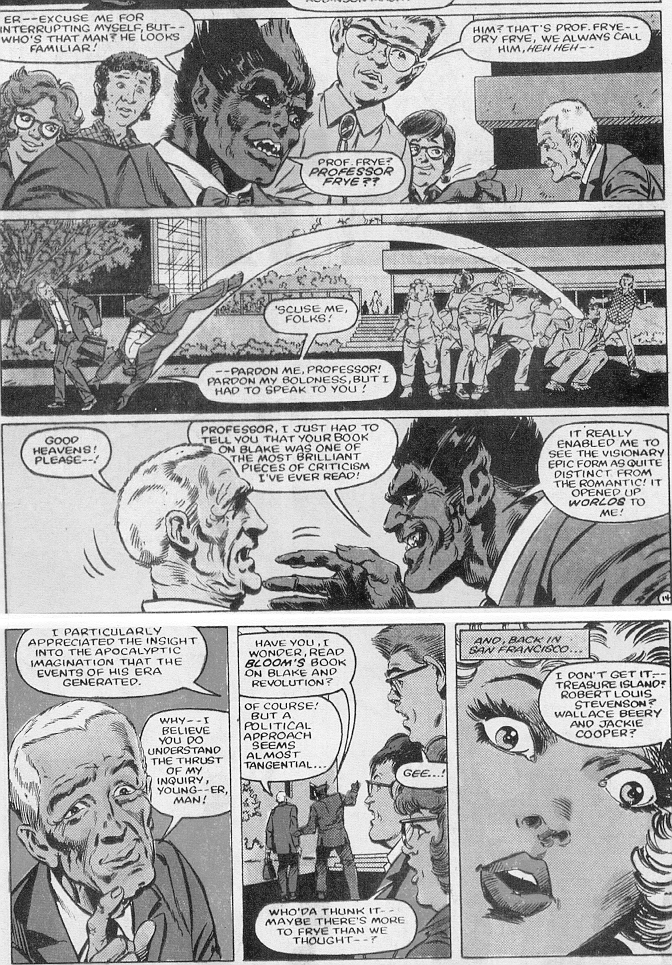httpv://www.youtube.com/watch?v=mC9-aEDXEiw
The entire glorious thing is available at the single link above
We’re following the science fiction thread begun with Solaris and followed by Fahrenheit 451 the week after that, but with a twist: Edward D. Wood’s Plan 9 from Outer Space.
Frye in “Rhetorical Criticism: Theory of Genres,” Anatomy:
The characteristics of babble are again present in doggerel, which is also a creative process left unfinished through lack of skill or patience. . . . Doggerel is not necessarily stupid poetry; it is poetry that begins in the conscious mind and has never gone through the associative process. It has a prose initiative, but tries to make itself associative by an act of will, and it reveals the same difficulties that great poetry has overcome at a subconscious level. We can see in doggerel how words are dragged in because they rhyme or scan, how ideas are dragged in because the are suggested by a rhyme-word, and so on. (CW 22, 259)
From this description we can see that any verbal structure might be generically considered doggerel if it lacks skill and patience, is not associative, is self-consciously rather than subconsciously processed, and generally betrays itself as the undressed word salad it invariably turns out to be.
Plan 9 from Outer Space is known as “the worst movie ever made” — so bad that you can’t look away; so bad that its unintentional hilarity provides zen instruction to anyone who thinks funniness is a specialized form of spontaneous combustion. If you haven’t seen it, please do. It rewards in ways that are unique to it. If you can’t bear to watch all of it, then at least take in the brief “Criswell Predicts” sequence that opens the movie — which will likely make you want to get to Criswell’s closing remarks at the end, and, just like that, you’ll have watched it right through.
The entire thing, every miscast word of it, is pure doggerel: the tautologies and non-sequiturs, the Dadaist moments of found comedy, the jack-knifing problems with continuity, and the absurd randomness of the elements of “terror” promiscuously thrown into the mix with winning confidence. (“Ah, yes, Plan 9: The resurrection of the dead.”)
Here’s a sample from Criswell’s opening remarks:
Greetings, my friends, we are all interested in the future because that is where you and I are going to spend the rest of our lives. And remember, my friends, future events, such as these, will affect you in the future.
That’s got to leave you hungry for more because only people who can’t make ’em can make ’em like this.


